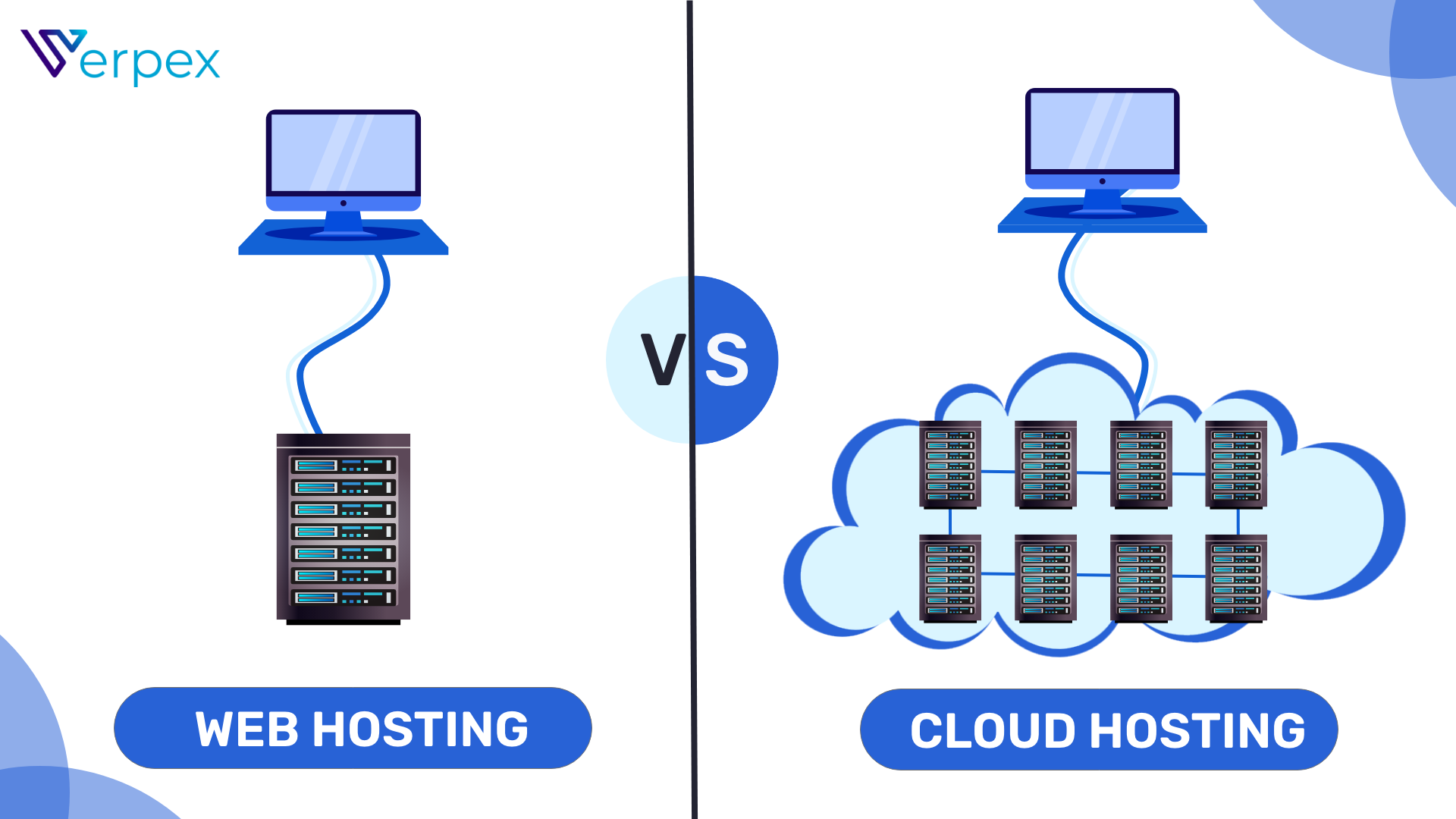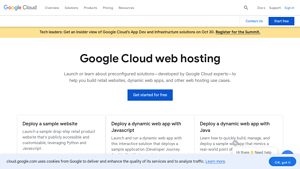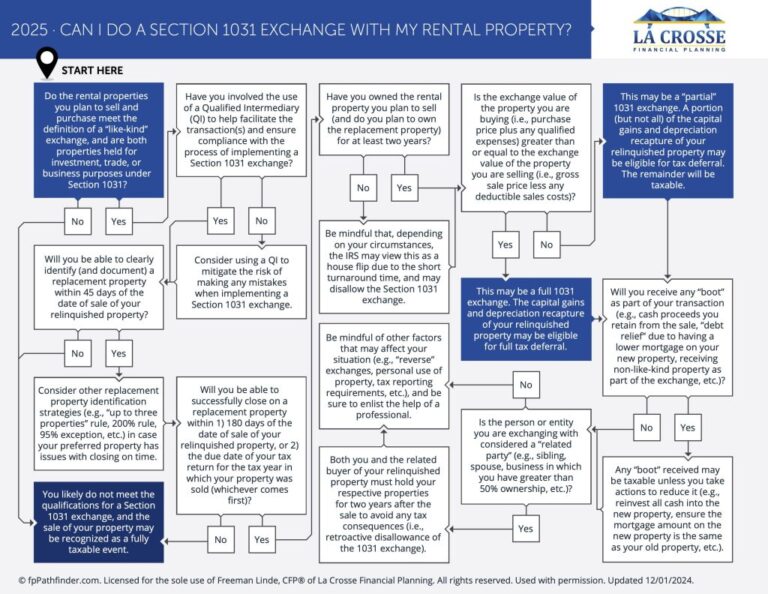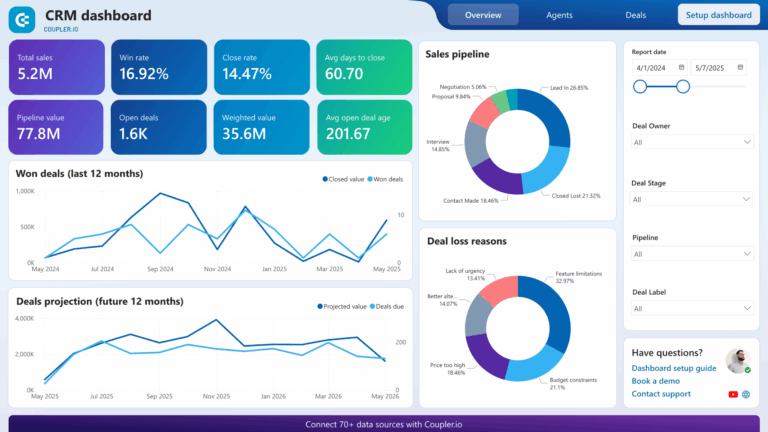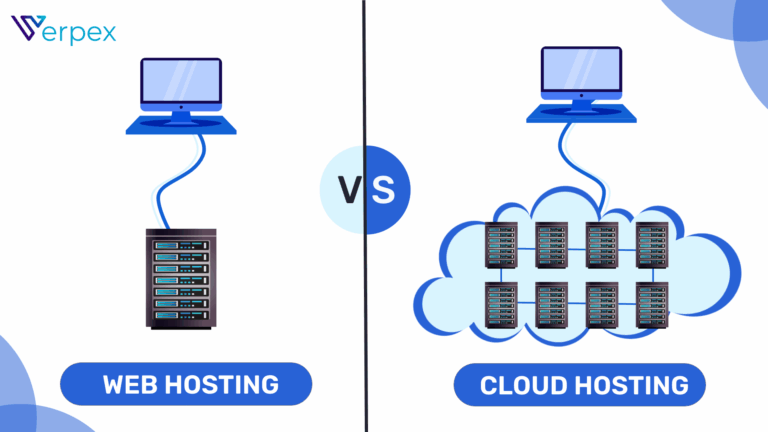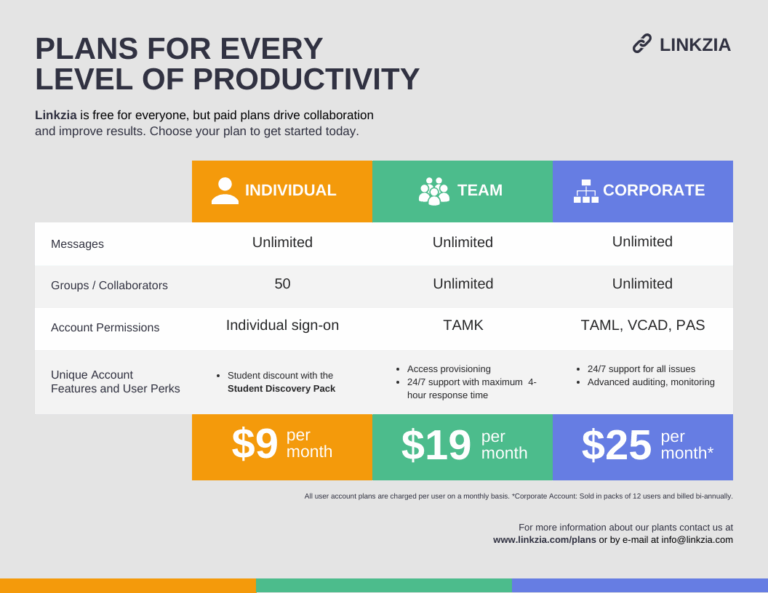The 7 Best Google Hosting Services of 2025
Choosing Your Digital Home: An Introduction to Web Hosting
Choosing the right web hosting service is a critical foundation for any successful website. Whether you are a small business owner, a passionate blogger, or a developer working on your next project, the hosting environment you select can significantly impact your website’s performance, reliability, and overall user experience. With the vast array of hosting options available today—from shared hosting to cloud solutions and dedicated servers—it’s common for users to feel overwhelmed by the choices.
Understanding the Importance of Web Hosting
Web hosting is the service that allows individuals and organizations to publish their websites on the internet. In essence, it provides the technology and resources needed for your website to be accessible to users worldwide. A good web host ensures that your site runs smoothly, loads quickly, and remains available even during high traffic periods. Conversely, a poor hosting choice can lead to slow load times, frequent downtimes, and ultimately, lost visitors and revenue.
Navigating the Confusion
For many, the journey of selecting a web hosting provider can be fraught with confusion. The terminology itself—shared, VPS, dedicated, cloud—can be intimidating. Each type of hosting comes with its own set of features, benefits, and drawbacks. Moreover, the pricing structures vary widely, adding another layer of complexity to the decision-making process. It’s easy to get lost in technical jargon or to be swayed by flashy marketing claims that may not align with your specific needs.
Your Guide to Informed Decision-Making
This guide aims to be your one-stop resource for understanding the various types of web hosting available, comparing top providers, and making an informed choice that best fits your project. We will delve into the strengths and weaknesses of different hosting types, helping you identify the right solution for your unique requirements, whether you need robust performance for a growing e-commerce site or a simple, user-friendly environment for a personal blog.
By the end of this guide, you will not only gain clarity on the web hosting landscape but also feel empowered to select a hosting service that aligns with your goals and budget. The right choice will lay a solid foundation for your online presence, enabling you to focus on what truly matters—creating great content and engaging with your audience.
The Best Google Hosting Providers of 2025
5. Google Cloud Web Hosting – Unmatched Scalability for Growing Businesses
Google Cloud web hosting offers versatile solutions suitable for a wide range of users, from individual bloggers to enterprises managing dynamic websites. With features like Click to Deploy for quick setup and customizable options for advanced users, it caters to diverse hosting needs. Its robust infrastructure ensures high performance and scalability, making it an ideal choice for those seeking reliable cloud-based hosting solutions.
- Website: cloud.google.com
- Company Age: Approx. 28 years (domain registered in 1997)
What is Web Hosting? A Plain English Guide
Web hosting is a crucial service that allows individuals and businesses to make their websites accessible on the internet. To understand web hosting better, let’s imagine it as renting space for a house. Just like you need a physical location to live, a website needs a place to “live” on the internet. This “place” is provided by a web hosting service.
The Basics of Web Hosting
When you create a website, you’re essentially designing a set of files—like text, images, and videos—that need to be stored somewhere. Web hosting companies own powerful computers called servers that store these files. When someone types your website’s address into their browser, their computer connects to the server where your files are stored, allowing them to view your website.
Think of it this way: if your website is a house, the server is the land on which your house is built. You can decorate it (add content), paint it (change design), and make it more functional (add features), but without the land (the server), there’s no place to put your house.
What is a Server?
A server is a special type of computer designed to store, process, and deliver data to other computers over the internet. Servers are more powerful than regular home computers, as they can handle multiple requests simultaneously. Here’s a simple breakdown of how servers work:
- Storage: Servers hold your website files, including HTML, CSS, JavaScript, and media files.
- Processing: When a user requests your website, the server processes that request and retrieves the necessary files.
- Delivery: The server sends the files back to the user’s computer, allowing them to see your website.
In our analogy, if your website is a house, the server is like the foundation and structure that keeps your house standing strong and accessible to visitors.
How Do Domains and Hosting Connect?
A domain is your website’s address on the internet, much like a street address for a house. For example, “www.yourwebsite.com” is a domain name. Just like you need a street address to tell people where to find your house, you need a domain name for users to find your website.
Here’s how domains and hosting work together:
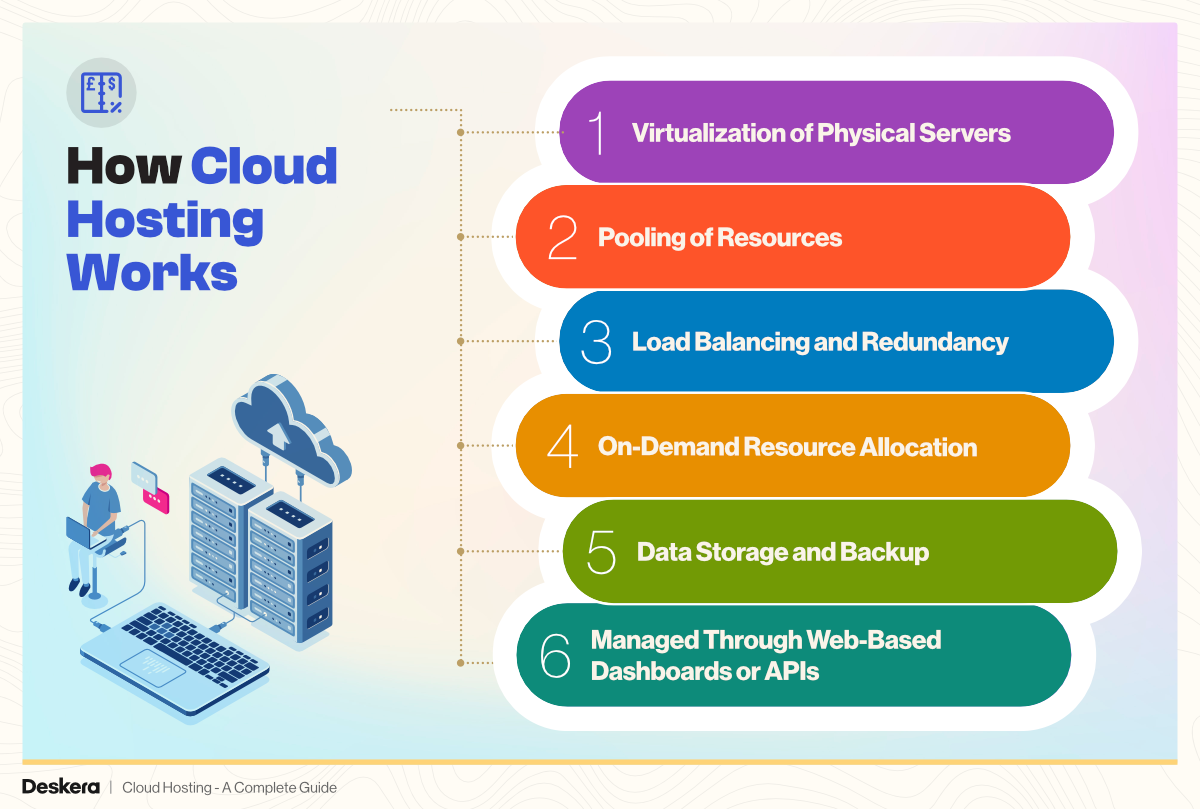
- Domain Registration: You register a domain name through a domain registrar, which is similar to getting a postal address for your house.
- Linking the Domain to Hosting: Once you have a domain, you need to connect it to your web hosting service. This is akin to putting up a sign with your address so that visitors know where to go.
- Accessing the Website: When someone types your domain name into their browser, the internet uses the domain to find your server and retrieve the website files stored there.
This connection ensures that whenever someone searches for your website, they are directed to the right server, just like someone finding your house based on the address you provided.
Why Do I Need a Hosting Service?
Having a website without hosting is like having a house without land—there’s nowhere for it to stand. Here are several reasons why you need a hosting service:
-
Accessibility: Hosting services ensure that your website is available 24/7. Just like a store needs to be open for customers to shop, your website needs to be online for visitors to access.
-
Performance: Good hosting improves your website’s loading speed. Faster websites provide a better user experience, just like a well-maintained road allows for smoother traffic flow.
-
Support and Maintenance: Most hosting providers offer customer support to help you resolve issues. If your house has plumbing problems, you’d call a plumber. Similarly, if there’s an issue with your website, you can reach out to your hosting service for assistance.
-
Security: Hosting services provide security features to protect your website from cyber threats, much like a security system protects your home. This includes SSL certificates, firewalls, and regular backups to keep your data safe.
-
Scalability: As your website grows, you may need more resources. Web hosting allows you to upgrade your plan to accommodate more traffic and data, similar to building an extension on your house as your family grows.

In summary, web hosting is essential for anyone looking to establish an online presence. It provides the necessary infrastructure to store and serve your website, ensuring that it remains accessible, secure, and efficient for your visitors. Just like a house needs land to stand on, your website needs hosting to thrive on the internet.
Types of Web Hosting: A Detailed Comparison
| Hosting Type | Best For | Performance | Price Range | Key Pro | Key Con |
|---|---|---|---|---|---|
| Shared Hosting | Beginners, personal blogs, small sites | Limited; shared resources | $2 – $10/month | Cost-effective and easy to use | Limited performance and resources |
| VPS Hosting | Growing businesses, developers | Good; dedicated resources | $20 – $100/month | More control and flexibility | Higher cost compared to shared hosting |
| Dedicated Server Hosting | Large businesses, high-traffic sites | Excellent; full resources | $100 – $500/month | Maximum performance and security | Expensive and requires technical skill |
| Cloud Hosting | Scalable businesses, variable traffic | High; resources can be scaled easily | $10 – $300/month | Scalability and reliability | Can be complex to manage |
| Managed WordPress Hosting | WordPress users, bloggers, agencies | Optimized for WordPress performance | $15 – $300/month | Hassle-free management and updates | Limited to WordPress sites |
Shared Hosting
What It Is:
Shared hosting is a type of web hosting where multiple websites are hosted on a single server. Each website shares the server’s resources, such as CPU, RAM, and disk space. This makes it an economical option, ideal for those who are just starting out.
Who Should Use It:
Shared hosting is best suited for beginners, personal blogs, and small business websites that do not expect high traffic. It’s a great choice for those who want to establish an online presence without incurring significant costs.
Pros:
– Cost-Effective: Shared hosting is usually the cheapest option available, making it accessible for those on a tight budget.
– User-Friendly: Most shared hosting providers offer easy-to-use control panels and one-click installations for popular applications like WordPress.
– Maintenance-Free: The hosting provider manages server maintenance, security, and updates, allowing users to focus on content creation.
Cons:
– Limited Performance: Since resources are shared, high traffic on one site can slow down others. This can be a significant drawback for growing websites.
– Less Control: Users have limited access to server settings and configurations, which may be restrictive for developers or businesses needing custom solutions.
– Security Risks: Shared hosting environments can pose security risks, as a vulnerability in one website could potentially affect others on the same server.
VPS Hosting
What It Is:
VPS (Virtual Private Server) hosting provides a virtualized server environment, where a physical server is divided into multiple dedicated virtual servers. Each VPS has its own operating system, resources, and configurations.
Who Should Use It:
VPS hosting is ideal for growing businesses, developers, and users who need more control and resources than shared hosting can provide. It’s suitable for websites experiencing increased traffic or requiring specific software configurations.
Pros:
– More Control: VPS users have root access to their server, allowing for custom configurations and installations.
– Dedicated Resources: Unlike shared hosting, VPS ensures that users have allocated resources, improving performance and stability.
– Scalability: VPS hosting can easily scale as your business grows, allowing for resource upgrades without major disruptions.
Cons:
– Higher Cost: VPS hosting is generally more expensive than shared hosting, which can be a concern for small businesses on a budget.
– Management Required: Users are often responsible for server management, including security updates and maintenance, unless opting for a managed VPS solution.
– Technical Knowledge Needed: Setting up and managing a VPS requires more technical skills compared to shared hosting.
Dedicated Server Hosting
What It Is:
Dedicated server hosting provides an entire physical server dedicated to a single user or organization. This option offers maximum performance, security, and control.
Who Should Use It:
Dedicated hosting is best for large businesses, high-traffic websites, and organizations that require full server resources and advanced configurations. It’s suitable for e-commerce sites, large blogs, and applications needing high uptime and performance.
Pros:
– Maximum Performance: Users have complete access to server resources, ensuring optimal performance even during traffic spikes.
– Enhanced Security: Dedicated servers offer higher levels of security, as users are not sharing resources with potentially vulnerable websites.
– Full Control: Users can customize server settings and install any software needed for their applications.
Cons:
– High Cost: Dedicated hosting is one of the most expensive hosting options, which may not be feasible for smaller businesses or personal sites.
– Technical Expertise Required: Managing a dedicated server often requires advanced technical skills, making it less suitable for beginners.
– Maintenance Responsibility: Users are typically responsible for server maintenance, security updates, and troubleshooting.
Cloud Hosting
What It Is:
Cloud hosting utilizes a network of virtual servers (the cloud) to host websites and applications. Resources are distributed across multiple servers, allowing for high reliability and scalability.
Who Should Use It:
Cloud hosting is ideal for businesses with fluctuating traffic, e-commerce sites, and applications requiring high uptime and performance. It’s suitable for startups and companies expecting rapid growth.
Pros:
– Scalability: Cloud hosting allows users to scale resources up or down easily, accommodating traffic spikes without downtime.
– High Reliability: The distributed nature of cloud hosting reduces the risk of server failure, ensuring better uptime.
– Pay-As-You-Go Pricing: Many cloud hosting providers offer flexible pricing models, allowing users to pay only for the resources they use.
Cons:
– Complexity: Managing cloud hosting can be more complex than other types, requiring a good understanding of server management and configurations.
– Variable Costs: While cloud hosting can be cost-effective, unpredictable traffic can lead to higher-than-expected bills.
– Potential Security Concerns: The shared nature of cloud resources may pose security risks, especially if not properly configured.
Managed WordPress Hosting
What It Is:
Managed WordPress hosting is a specialized hosting service optimized for WordPress websites. It includes features tailored to enhance the performance and security of WordPress sites, along with automatic updates and backups.
Who Should Use It:
Managed WordPress hosting is ideal for bloggers, agencies, and businesses using WordPress as their content management system. It’s perfect for those who want to focus on content creation without the hassle of managing technical aspects.
Pros:
– Optimized Performance: Managed hosting is designed to deliver fast loading times and excellent performance for WordPress sites.
– Automatic Updates: Hosting providers manage WordPress updates, ensuring that sites are always running the latest version.
– Enhanced Security: Many managed WordPress hosts offer advanced security features, including firewalls, malware scanning, and daily backups.
Cons:
– Higher Cost: Managed WordPress hosting can be more expensive than traditional shared hosting, which may deter budget-conscious users.
– Limited to WordPress: This type of hosting is specifically tailored for WordPress, making it unsuitable for users who need to host other platforms or applications.
– Less Control: Users may have limited access to certain server settings and configurations, which can be a drawback for advanced users or developers.
Conclusion
Choosing the right type of web hosting depends on your specific needs, technical expertise, and budget. Shared hosting is perfect for beginners or low-traffic sites, while VPS and dedicated hosting cater to businesses with higher demands. Cloud hosting offers flexibility and scalability, ideal for growing businesses, and managed WordPress hosting simplifies the process for WordPress users. Carefully assess your requirements to select the hosting solution that best fits your goals.
How to Choose a Hosting Provider: A 5-Point Buyer’s Guide
Performance and Uptime
Why Performance Matters
The performance of your website directly affects user experience, search engine rankings, and overall business success. A slow-loading website can lead to high bounce rates, where visitors leave before your page fully loads. This can negatively impact your SEO, as search engines prioritize fast, responsive sites.
Key Metrics to Consider
– Uptime Guarantee: Look for hosting providers that offer at least a 99.9% uptime guarantee. This metric indicates the percentage of time your website will be operational and accessible.
– Load Speed: A good hosting provider should offer fast load times, ideally under 2 seconds. Check for performance benchmarks and read reviews to gauge load speed.
– Content Delivery Network (CDN): A CDN helps distribute your content globally, improving load times for users regardless of their geographic location. Check if the hosting provider includes a CDN in their offerings.
What to Look For
When evaluating hosting providers, review their uptime statistics, performance metrics, and user feedback. Many reputable providers will share their performance data and uptime history. Consider running tests or using third-party monitoring tools to assess their claims.
Customer Support
Importance of Reliable Support
As a small business owner, blogger, or developer, you may encounter technical issues or have questions about your hosting environment. Reliable customer support can save you time and frustration.
Types of Support Offered
– 24/7 Availability: Ensure that customer support is available around the clock. Issues can arise at any time, and having support ready to assist is crucial.
– Multiple Contact Options: Look for providers that offer various ways to reach support, such as live chat, email, and phone support. This flexibility can be invaluable when you need urgent assistance.
– Knowledge Base: A well-maintained knowledge base or help center can empower you to solve common issues independently. Check if the provider offers comprehensive documentation, tutorials, and FAQs.
What to Look For
Before committing, test the provider’s customer support by reaching out with a question or issue. Assess their response time, the helpfulness of the information provided, and the availability of various support channels.
Pricing and Renewal Rates
Understanding the Cost Structure
When choosing a hosting provider, it’s essential to consider not only the initial pricing but also the long-term costs. Many providers offer attractive introductory rates that increase significantly upon renewal.
Key Pricing Factors
– Initial vs. Renewal Pricing: Check the differences between the initial promotional price and the renewal rates. Some providers may offer low initial costs but have high renewal fees, which can strain your budget in the long run.
– Hidden Fees: Be wary of additional charges for features that may be included in other providers’ packages, such as domain registration, SSL certificates, or backup services.
– Money-Back Guarantee: A money-back guarantee gives you peace of mind. If the hosting service doesn’t meet your expectations, you can get your money back within a specified period.
What to Look For
Read the fine print regarding pricing and renewal rates. Calculate the total cost of ownership over a year or more to get a clearer picture of what you will pay. Compare this with the features and support offered to ensure you are getting good value.
Security Features (SSL, Backups)
Why Security is Crucial
With increasing cyber threats, robust security features are essential for protecting your website and its data. A breach not only compromises your site’s integrity but can also damage your reputation and customer trust.
Key Security Features to Consider
– SSL Certificates: An SSL certificate encrypts data transferred between your website and its visitors, ensuring secure transactions. Look for providers that offer free SSL certificates or include them in their hosting plans.
– Regular Backups: Ensure the hosting provider offers automated backups to protect your data from loss due to technical failures or cyber attacks. Check how often backups are performed and how easy it is to restore your website.
– Firewalls and Security Monitoring: A good hosting provider will have firewalls and other security measures in place to protect against DDoS attacks and other threats. Look for features like malware scanning and removal.
What to Look For
Investigate the security measures each provider has in place. Review customer feedback regarding their experiences with security incidents. Ensure that the features offered align with your website’s needs, especially if you handle sensitive data.
Scalability and Future Growth
Importance of Scalability
As your business grows, your hosting needs may change. Choosing a hosting provider that allows for easy scaling can save you time and hassle in the future.
Key Scalability Features
– Upgrade Options: Look for providers that offer a range of hosting plans, allowing you to easily upgrade resources as your traffic increases.
– Cloud Hosting: Cloud hosting typically offers better scalability than traditional shared hosting. It allows you to pay for only the resources you use and scale up or down based on demand.
– Performance Monitoring Tools: Some providers offer built-in analytics tools that help you monitor your website’s performance and resource usage, allowing you to make informed decisions about scaling.
What to Look For
Evaluate the provider’s offerings to ensure they align with your growth plans. Consider your expected traffic and resource needs in the coming years. A good hosting provider will support your growth without requiring significant downtime or migration efforts.
By carefully considering these five factors—performance and uptime, customer support, pricing and renewal rates, security features, and scalability—you can make an informed decision when selecting a hosting provider. This thorough approach will help ensure that your website remains reliable, secure, and capable of supporting your business as it grows.
Key Hosting Terms and Jargon Explained
cPanel
cPanel is a web-based control panel that simplifies the management of web hosting accounts. It provides a graphical interface and automation tools designed to make it easier for users, especially those without extensive technical knowledge, to manage their websites.
Key Features of cPanel:
- File Management: Users can upload, delete, and organize files on their web server easily.
- Domain Management: cPanel allows users to manage domains, including adding subdomains and parked domains.
- Email Management: Users can create and manage email accounts associated with their domain.
- Database Management: cPanel provides tools to create and manage databases using MySQL or PostgreSQL.
- Software Installers: Many cPanel installations include “one-click” installers for popular applications like WordPress, Joomla, and more.
SSL Certificate
An SSL (Secure Sockets Layer) certificate is a digital certificate that provides authentication for a website and enables an encrypted connection. SSL certificates are essential for securing sensitive data, such as credit card information and personal details, exchanged between a user’s browser and a web server.
Importance of SSL Certificates:
- Data Encryption: SSL encrypts the data transmitted between the user and the server, making it difficult for third parties to intercept.
- Trust and Credibility: Websites with SSL certificates display a padlock icon in the browser’s address bar, which enhances user trust.
- SEO Benefits: Search engines like Google favor HTTPS sites (those with SSL), potentially improving search rankings.
Bandwidth and Data Transfer
Bandwidth refers to the maximum amount of data that can be transmitted over an internet connection in a given time period, usually measured in bits per second (bps). Data transfer, on the other hand, refers to the actual amount of data sent and received during a specific time frame.
Understanding Bandwidth and Data Transfer:
- Bandwidth: Think of bandwidth as the width of a highway; a wider highway can accommodate more traffic at once.
- Data Transfer: This is like the total number of vehicles (data packets) that have traveled on that highway in a day. Hosting providers often set limits on both bandwidth and monthly data transfer to manage resources effectively.
Storage (SSD vs. HDD)
Storage refers to the method of storing website data on a server. The two primary types of storage used in web hosting are Solid State Drives (SSD) and Hard Disk Drives (HDD).
SSD vs. HDD:
- Solid State Drives (SSD): SSDs are faster and more reliable than traditional HDDs because they use flash memory to store data. This results in quicker load times and improved performance for websites.
- Hard Disk Drives (HDD): HDDs are traditional storage devices that use spinning disks to read and write data. While generally cheaper and offering more storage capacity, they are slower compared to SSDs.
Domain Name System (DNS)
The Domain Name System (DNS) is the system that translates human-readable domain names (like www.example.com) into IP addresses (like 192.0.2.1) that computers use to identify each other on the network.
How DNS Works:
- Domain Names: A domain name is easier for users to remember than a numeric IP address.
- DNS Records: DNS uses various types of records (like A records, CNAME records, MX records) to direct traffic to the correct server and manage email routing, among other tasks.
- Propagation: When changes are made to DNS records, it can take time (usually up to 48 hours) for those changes to propagate across the internet.
Uptime
Uptime refers to the amount of time that a server or service is operational and accessible to users. It is typically expressed as a percentage of total time, with 99.9% uptime being a common benchmark for many hosting providers.
Importance of Uptime:
- Reliability: High uptime percentages indicate that a hosting provider is reliable and that websites hosted on their servers are likely to be accessible when needed.
- Business Impact: For online businesses, downtime can lead to lost revenue and a poor user experience. Therefore, choosing a hosting provider with a strong uptime guarantee is critical.
Conclusion
Understanding these key hosting terms will empower you to make informed decisions as you navigate the world of web hosting. Whether you’re a small business owner looking to establish an online presence or a developer planning a complex application, having a solid grasp of these concepts will help you choose the right hosting solutions tailored to your needs.
Frequently Asked Questions (FAQs)
1. Can I host my own website on Google Cloud?
Yes, you can host your own website on Google Cloud. Google Cloud provides a variety of hosting solutions, including Firebase Hosting for static and dynamic web apps, and Compute Engine for complete control over your server configurations. You can deploy applications using different frameworks and programming languages, allowing for flexibility in how you build and manage your site.
2. How much should I pay for hosting on Google Cloud?
The cost of hosting on Google Cloud varies based on the services you choose and your website’s resource needs. Google Cloud offers a pay-as-you-go pricing model, which means you only pay for the resources you use. For example, basic web hosting can start from a few dollars per month, while more complex setups with higher traffic may cost significantly more. Google also provides $300 in free credits for new users to help you get started without an upfront investment.
3. What’s the difference between a domain and hosting?
A domain is the address of your website on the internet (e.g., www.example.com), while hosting is the service that stores your website’s files and makes them accessible on the internet. You need both a domain and hosting to have a functional website. In many cases, hosting providers, including Google Cloud, offer domain registration services, allowing you to manage both through a single platform.
4. What types of websites can I host on Google Cloud?
You can host various types of websites on Google Cloud, including static websites, dynamic web applications, e-commerce sites, and content management systems (CMS) like WordPress. Google Cloud provides preconfigured solutions and support for numerous programming languages and frameworks, giving you the flexibility to build the site that best fits your needs.
5. Is Google Cloud suitable for small businesses?
Absolutely! Google Cloud is suitable for small businesses due to its scalable solutions and flexible pricing. You can start with minimal resources and easily upgrade as your business grows. The platform also offers user-friendly tools and extensive documentation to help small business owners manage their web hosting effectively.
6. How does Google Cloud ensure the security of my website?
Google Cloud employs several security measures to protect your website, including built-in SSL certificates for secure connections, regular security updates, and firewalls. Additionally, Google Cloud’s infrastructure is designed with redundancy and data protection in mind, helping to mitigate risks associated with cyber threats.
7. Can I migrate my existing website to Google Cloud?
Yes, you can migrate your existing website to Google Cloud. Google provides various tools and documentation to assist with the migration process, whether you’re moving a simple static site or a complex web application. Depending on your setup, you may need to configure your domain settings and adjust your hosting environment to ensure a smooth transition.
8. What support options does Google Cloud offer for hosting?
Google Cloud offers several support options, including comprehensive documentation, community forums, and technical support plans. Depending on the level of support you choose, you can access 24/7 customer service, technical assistance for complex issues, and personalized help from Google Cloud experts.
Conclusion: Making Your Final Decision
Understanding Your Unique Needs
Choosing the right web hosting service is a pivotal decision that hinges on your specific requirements. Whether you’re a small business owner, a blogger, or a developer, the “best” hosting solution will vary significantly based on your budget, anticipated traffic, and technical expertise. For instance, if you are just starting out and expect moderate traffic, shared hosting or cloud options like Google Cloud or Firebase might be ideal due to their scalability and affordability. Conversely, if your site demands high performance and uptime, investing in a dedicated server or a premium cloud provider may be more suitable.
Key Considerations
As you evaluate your options, keep in mind the most critical factors that can influence your hosting experience:
-
Support: Reliable customer support can save you from potential headaches down the line. Look for providers that offer 24/7 assistance through multiple channels, such as live chat, email, or phone support.
-
Uptime: A hosting provider’s uptime guarantee is crucial. Aim for a provider that offers at least 99.9% uptime, ensuring your website remains accessible to users without interruptions.
-
Scalability: Your hosting solution should be able to grow alongside your website. Choose a provider that allows you to easily upgrade your plan to accommodate increased traffic without downtime.
Start Your Journey with Confidence
Remember, your web hosting choice lays the foundation for your online presence. Take the time to assess your needs, compare options, and consider user reviews. With the right hosting provider, you can focus on what truly matters—creating and growing your website. Don’t hesitate to take that first step; the digital landscape is waiting for your unique contributions. Start your project today with confidence!
Important Disclaimer
⚠️ Important Disclaimer
The information and reviews in this guide are for educational purposes, based on publicly available data and our own analysis. We are not affiliated with any hosting providers mentioned. Features, pricing, and performance change frequently. Always conduct your own research and check the provider’s official website before making a purchase.
